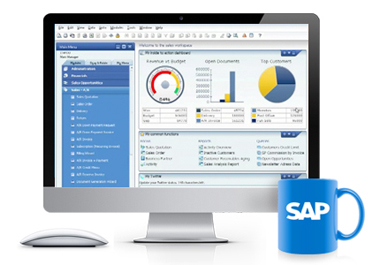ERP Integration is Key for Enterprise Success
When every part of your company runs in sync, success comes almost naturally to the enterprise. For a long time, small and mid-sized businesses (SMBs) have utilized specialized enterprise resource planning (ERP) software modules for each area of the organization. Each software application might have been the best on the market for its individual function, such as financial accounting, customer relationship management (CRM), or inventory control. However, in order to provide maximum functionality for its specific purpose, each app would run on its own system, completely separate from every other software program utilized by the business. That means each system was totally incapable of communicating with one another. The data collected by each department within the enterprise was totally locked away and inaccessible by employees outside of the exact department.
If each area of an enterprise could run smoothly and productively on its own, this inaccessibility of data would not be a major issue. A business is not simply a collection of isolated departments, however. It’s an organization with many moving parts, and all of those parts are deeply interconnected. Consider an automobile, a computer, or even a living human being, which all contain a variety of critical components. Each of those components not only serve a special purpose, but also work in perfect tandem with one another to achieve a higher goal. For cars, PCs, and people, the goal of those individual parts is ultimately to provide power and propulsion.
The individual components of your business–accounting, customer service, sales, inventory, etc.–serve this exact purpose. Together, they fuel your business to operate on a day-to-day basis. For this reason, it is critical that your ERP software not only supplies powerful applications for each of these areas of business, but that it also seamlessly integrates each one to foster ultra-efficient and perfectly synchronized enterprise operations.
The accounting department handles finances and budgets for the entire organization. In order to adequately assign funds to each area of the enterprise, the accountants must have access to data and records from every other department. Customer service and sales representatives spend much of their time answering customer questions about products and services offered by the company. Because the representatives can’t memorize every minute detail about the thousands of products in the warehouse, they need to be able to tap into the inventory database and easily locate the information they need. Similarly, the warehouse employees must be able to check up on sales and purchases to rapidly fulfill and deliver orders. Today’s top-rated ERP software allows all of these essential business operations to flow in sync with one another.
Many SMBs all over the world choose SAP Business One as their integrated ERP solution because it provides the fastest, most efficient business management applications on the market today. If you are the owner of a growing enterprise in the industries of wholesale distribution, manufacturing, or retail, Cornerstone Consulting can help you discover how SAP Business One can empower your company for fast growth and sustainable success.


